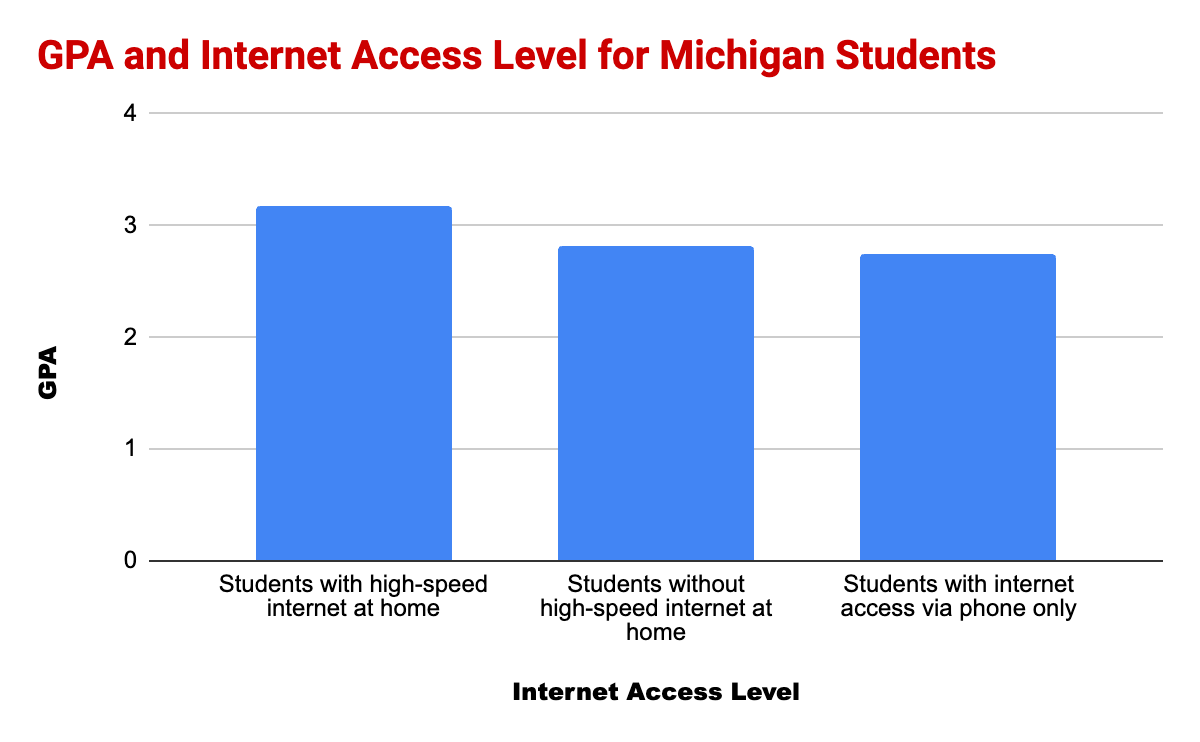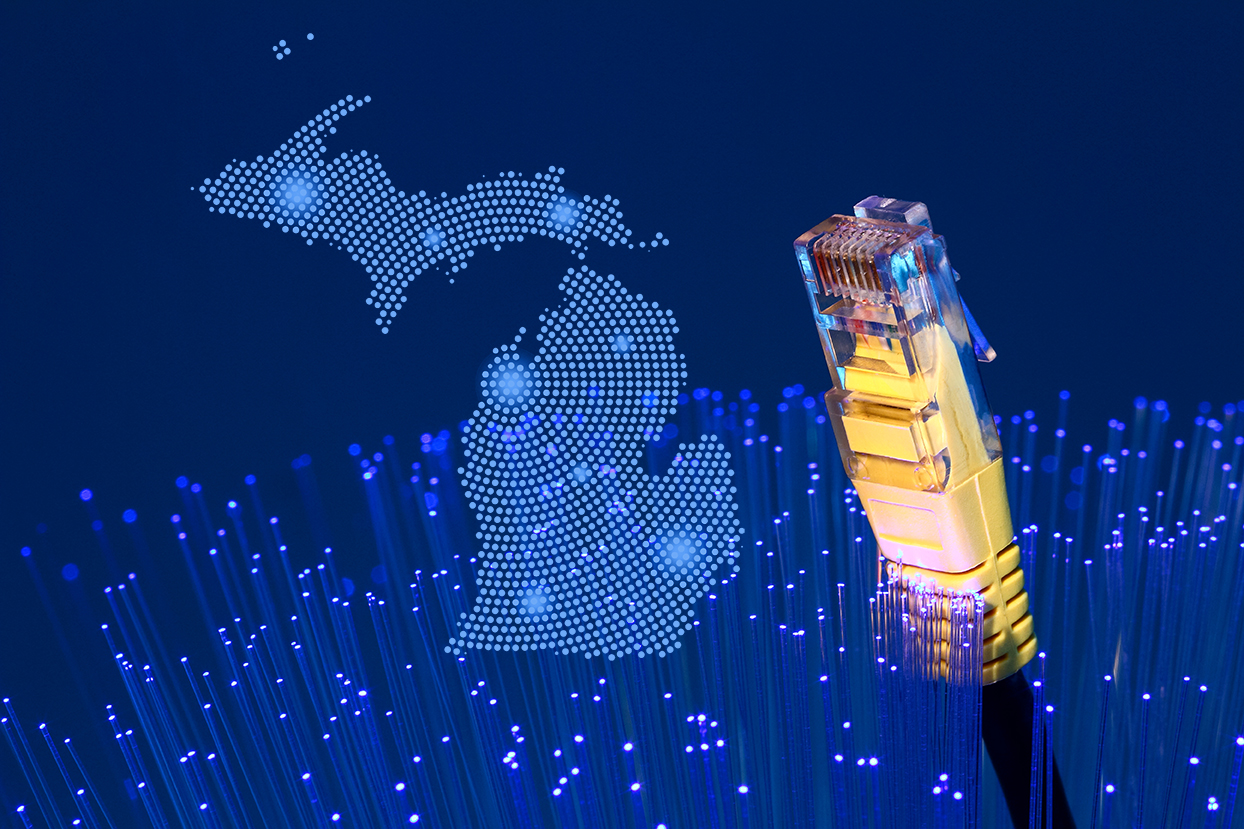Michigan is receiving some $250 million in federal dollars to expand fast and reliable internet to nearly 68,000 rural and urban homes and struggling businesses that do not have regular access to broadband.
“We know that a reliable connection is not a luxury—it’s a necessity for health care, education, employment, entertainment, and so much more,” said Gov. Gretchen Whitmer. “Let’s keep working together to connect more Michiganders to high-speed internet so we can grow our economy and ensure everyone can ‘make it’ in Michigan.”
According to the Michigan High-Speed Internet Office (MIHI), about one-third of Michigan households do not have reliable, fast internet. The impact can be serious. Students with access to high-speed internet at home have an average GPA of 3.18, while those without home internet access have a lower average GPA of 2.81. Students who rely solely on their phone for the internet have an even lower average GPA of 2.75. Additionally, small businesses with their own websites earn more yearly, and businesses that use social media regularly are three times more likely to have recently created a new job.

The federal dollars, available through 2021’sAmerican Rescue Plan, will connect about 23% of the state’s locations lacking high-speed internet. The effort is part of President Joe Biden’s Internet for All effort to bridge the divide between people who have easy access to reliable internet and those who do not. That gap – “the digital divide” – was evident by the challenges posed during the COVID-19 pandemic when some people were forced to tap into free wireless internet networks available at businesses and public buildings.
“It’s obviously unacceptable to see people … have to pull into a McDonald’s to get their Wi-Fi,” said U.S. Rep. Dan Kildee from Flint Township. “Access to reliable fast internet is important to every aspect of modern life.”
How it will work:
The $250 million will defray the costs of installing high-speed broadband in communities that do not have enough customer demand for the private sector to justify the expense of installation. Under this program, internet service providers and their public partners will be paid to install the service that allows users to upload and download data at speeds of 100 megabits per second – the rate that the Federal Communications Commission deems “high-speed.”
Whitmer’s MIHI is in charge of awarding the funds based on applications. An estimated $239 million will go to broadband expansion and the rest will cover related administrative costs.
Nationally, the American Rescue Plan has earmarked $25 billion for high-speed internet funding, with the Bipartisan Infrastructure Law contributing an additional $65 billion.
Michigan was one of the first three states to be awarded funds from President Biden’s rescue plan and will secure additional funds from other national programs to help Michiganders secure fast and reliable internet coverage.
Key facts:
- Boost in Education: Students with high-speed internet at home have an average GPA of 3.18, compared to 2.81 for those without, highlighting the educational benefits of the $250 million federal investment in Michigan’s internet expansion.
- Small Business Growth: Businesses with websites and regular social media use see higher revenues and are three times more likely to create new jobs, emphasizing the economic impact of improved internet access from the new funding.
- Bridging the Digital Divide: The funding, part of President Biden’s Internet for All initiative, will connect 23% of Michigan locations currently without high-speed internet, addressing the urgent need revealed during the COVID-19 pandemic for reliable internet access.


